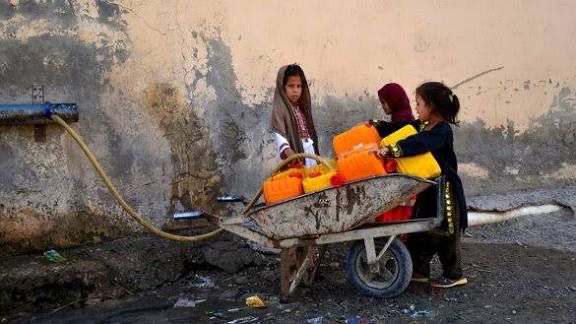
report by obaidullah ahmadi
Due to consecutive droughts and the decline of groundwater levels, major cities in Afghanistan are facing a crisis of drinking water shortages.
Among them, Kandahar is considered one of the most vulnerable cities, where thousands of families spend hours every day searching for clean water.
The International Federation of Red Cross and Red Crescent Societies has recently warned in a report that the water shortage in Kandahar has made life extremely difficult for families and caused many children to drop out of school.
“Zarghona,” a resident of the third district of Kandahar city, told IntelMedium’s reporter: “Every morning we have to walk two hours on foot to find a few containers of water. Sometimes the water is so salty that it’s not suitable for drinking, but we have no other choice. My children, instead of going to school, come with me to fetch water.”
Another resident named “Abdul Rahman,” who is a shopkeeper, told IntelMedium that the drought has paralyzed people’s lives: “Before, we used to draw water from our home well, but now the well has dried up. Now we have to buy water from tankers, which is very expensive for poor people.”
In some suburban areas of the city, people are forced to use unhealthy and contaminated water for drinking. “Maryam,” a mother of four children, said: “Sometimes we get water from public taps, but that water is not clean either. My children have gotten sick several times, and the doctor said it was because of polluted water.”
Environmental experts say the main causes of the crisis are consecutive droughts, decreased rainfall, excessive extraction of groundwater, and lack of proper water resource management.
“Hamid Naseri,” an environmental affairs expert, warns: “If water management is not taken seriously, not only Kandahar but many other cities in Afghanistan will face a severe humanitarian crisis in the coming years.”
While humanitarian organizations such as the Red Cross and Red Crescent are trying to launch small water supply projects, the people’s need for clean water is far greater than the capacity of these programs.
The International Federation of Red Cross has called on the government and international institutions to implement urgent and long-term programs to prevent the expansion of the water crisis in Afghanistan so that families, especially children, can be protected from the painful effects of this situation.
